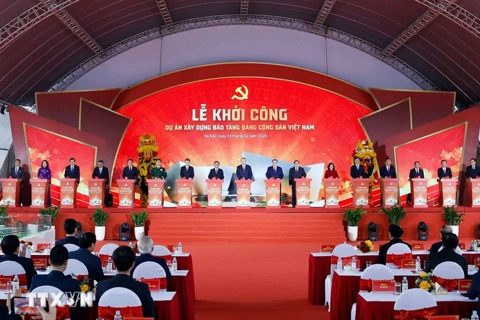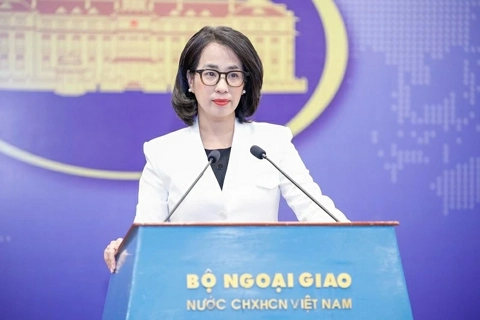Vietnam concerned about transboundary impacts of Mekong River hydropower dams
The development and operation of hydropower projects on the Mekong River must avoid adverse cross-border impacts on the environment, economic development, and social life of basin countries.
As a downstream nation, Vietnam is highly concerned about the transboundary implications of hydropower dams on the Mekong River, according to the Ministry of Foreign Affairs.
| A hydropower dam on the Mekong River. Source: Adam Oswell/WWF |
"Mekong is a transboundary river flowing through several countries. As a downstream nation, Vietnam is highly concerned about the cross-border impacts and water storage capacity of hydropower projects on the Mekong River," Deputy Spokesperson of the Ministry of Foreign Affairs Doan Khac Viet told a regular press briefing today [May 23].
Viet made the remarks when asked to comment on reports by some experts suggesting that the 14 hydropower dams on the mainstream of the Mekong River, including 12 from China, pose risks of depleting the river's flow and reducing sediment transport to downstream areas. This contributes to worsening salinity intrusion and erosion in the Mekong Delta.
He emphasized that the development and operation of hydropower projects on the Mekong River must ensure no negative impacts, including transboundary impacts on the environment, economic growth, and social life of countries in the basin, particularly downstream nations, and must comply with international laws and practices.
"Vietnam is willing and ready to cooperate with relevant countries to enhance the management and sustainable use of Mekong River water resources, ensuring harmony of interests among nations while avoiding negative impacts on the lives of people in the region," Viet stated.
The Mekong River stretches 4,350 km, originating from its source in the Tibetan Plateau to its mouth in the East Sea. It is a lifeline for tens of millions of people in China, Laos, Myanmar, Thailand, Cambodia, and Vietnam who rely on agriculture and fishing.
Upstream countries have built numerous dams, including some over 100 meters high, to promote renewable energy. However, studies show that if all planned dams on the Mekong were built, nearly all the sediment would be trapped upstream, affecting rice cultivation—a vital food source for millions of people in the region.
Additionally, hydropower dams obstruct migratory fish and alter water flows. The Mekong River Commission estimates that the fishing industry in Mekong could suffer losses of up to $23 billion by 2030. The damage from the loss of forests, wetlands, and mangroves could reach US$145 billion.













